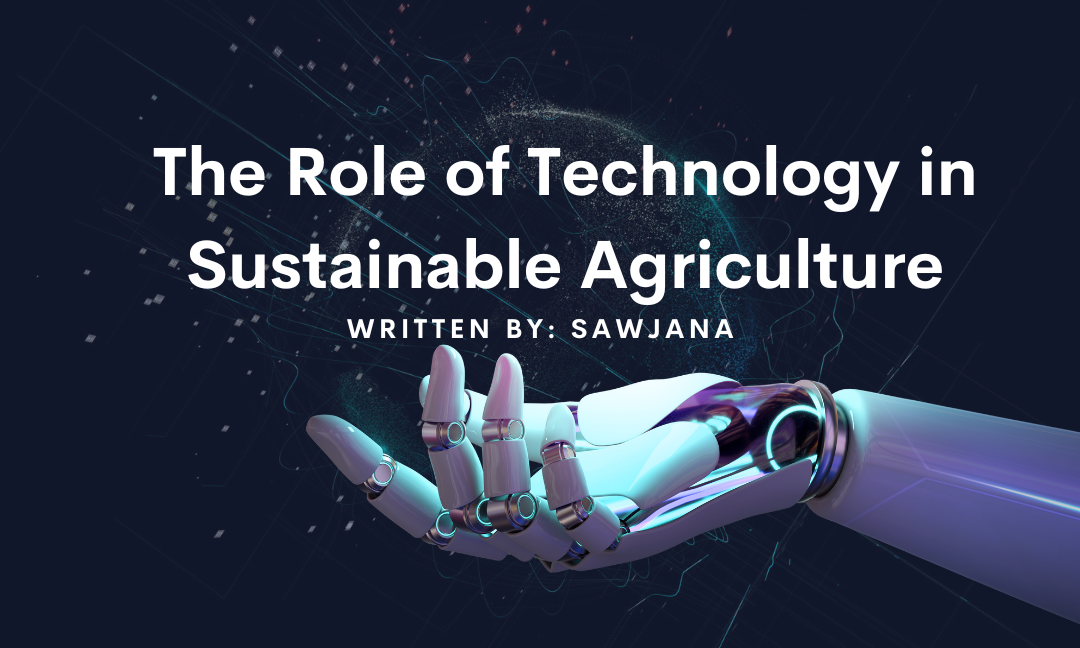Written by: Sawjana
Edited by: Maryam Nasser
Designed by: Fatima Khan
Published by: Kiritika Rana
Agriculture has always been essential to human civilization by providing the food we need to survive. However, modern agricultural practices have resulted in significant environmental degradation, including soil erosion, water depletion, and pollution. To combat these challenges, sustainable agriculture has emerged as a viable solution, and technology plays a crucial role in achieving this goal. 
Sustainable agriculture is a farming system that uses techniques that conserve natural resources and promote biodiversity while maintaining productivity and profitability. Technology has enabled these goals by providing farmers with innovative tools and methods that reduce environmental impact, increase efficiency, and boost yields.
One of the most significant technological advancements in sustainable agriculture is precision agriculture. Precision agriculture uses GPS, sensors, and drones to gather data on soil conditions, weather patterns, and plant health. This information is then used to optimize planting, irrigation, and fertilization to reduce waste and increase efficiency.
Another critical technology in sustainable agriculture is genetic engineering. Genetic engineering allows scientists to create plants more resistant to pests and disease, reducing the need for harmful pesticides and herbicides. It can also develop crops more tolerant to extreme weather conditions, such as drought and flooding, reducing the risk of crop failure.
Technology has also led to the development of sustainable farming practices such as conservation tillage, cover cropping, and crop rotation. Conservation tillage involves reducing soil disturbance during planting and cultivating, which helps to maintain soil structure and reduce erosion. Cover cropping involves planting a crop during the off-season to prevent soil erosion, improve soil quality, and reduce weed growth. Crop rotation involves planting different crops in a field over time, which helps to maintain soil health and reduce the risk of disease and pests.
In addition, technology has led to the development of alternative energy sources, such as solar and wind power, which can be used to power farm equipment and reduce reliance on fossil fuels. Precision irrigation systems, such as drip irrigation and soil moisture sensors, reduce water waste by delivering water directly to plants’ roots and only when needed.
Sustainable agriculture is crucial for the future of our planet, and technology plays a vital role in achieving this goal. Farmers can reduce waste, increase efficiency, and boost yields by using precision agriculture, genetic engineering, and sustainable farming practices while preserving the environment for future generations. As technology continues to evolve, we must invest in sustainable agriculture to ensure a secure and sustainable food supply for the future.
Work Cited
https://www.innovationnewsnetwork.com/technology-in-sustainable-agriculture/5053/
https://ipmworld.umn.edu/hutchins
https://www.informationweek.com/big-data/technology-feeds-sustainable-agriculture

